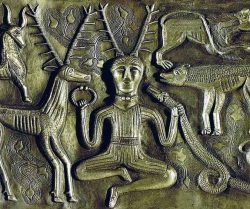What is Paganism?
Paganism is a diverse and ancient set of spiritual beliefs that have existed for centuries. Rooted in nature and often drawing inspiration from pre-Christian traditions, paganism encompasses a wide range of practices and perspectives.
In this article, we will explore the essence of paganism, delve into its historical background, and shed light on the varied religious beliefs that fall under this umbrella term.
Defining Paganism: Paganism is a term that broadly refers to polytheistic and nature-centered spiritual practices. Unlike organized religions with centralized doctrines, paganism encompasses a multitude of belief systems, making it challenging to provide a singular definition.
What unites pagans is their reverence for nature, diverse pantheons, and a focus on the interconnectedness of all living things.
History: The roots of paganism trace back to ancient civilizations where indigenous cultures worshipped a multitude of deities associated with natural elements such as the sun, moon, earth, and water.
As societies evolved, so did their spiritual practices. The term “pagan” itself originally meant ‘country dweller’ or ‘civilian’ and was later used pejoratively by adherents of monotheistic religions to describe those who adhered to non-Abrahamic beliefs.
Paganism in Antiquity: In antiquity, pagan practices thrived in regions such as Greece and Rome, where deities like Zeus, Athena, and Apollo were revered.
These ancient belief systems often involved rituals, ceremonies, and festivals to honor the gods and goddesses, seeking their favor for agricultural abundance, fertility, and protection.
Modern Paganism: While many ancient pagan practices diminished with the rise of monotheistic religions, elements of paganism endured and experienced a revival in the modern era.
The 20th century saw the emergence of various neopagan movements, such as Wicca, Druidry, and Heathenry.
These modern pagan paths often blend ancient traditions with contemporary interpretations, emphasizing personal spiritual experiences and environmental consciousness.
Religious Beliefs in Paganism: Paganism is characterized by its diversity, with practitioners holding a wide array of beliefs.
Some pagans follow reconstructed ancient traditions, striving to recreate the rituals and practices of specific historical cultures. Others embrace eclectic or syncretic approaches, combining elements from different traditions to create a unique spiritual path.
Common themes include a connection to the cycles of nature, reverence for the divine feminine and masculine, and a belief in magic or ritual practices for spiritual growth.
In essence, paganism is a multifaceted and evolving spiritual landscape that celebrates diversity and interconnectedness. Its historical roots provide a rich tapestry of traditions, while modern expressions continue to adapt and grow.



























